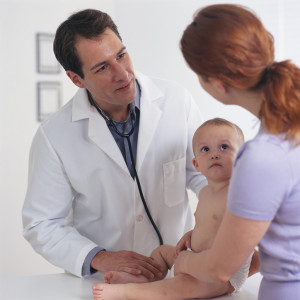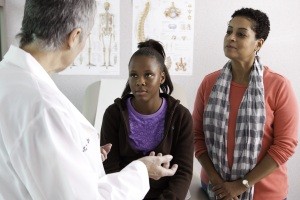The Importance of Vaccinating your Children

The CDC has recently released guidelines on what parents need to know regarding vaccinating their kids. Nowadays, many school health programs include the major vaccinations to make sure every child is safe from preventable illnesses. However, when schools don’t provide them, the request to make sure parents organise vaccinations before their children start, is a state requirement. Vaccinations, the CDC says, are one of the most important things you can do as a parent to ensure your child’s health and safety and parents that choose not to vaccinate their children increase the risk of disease not only for their own children, but also for other children and adults throughout the community.
Here are the types of vaccinations you should be sure your children and teenagers receive, from a newborn to an 18 year old, according to the CDC.
Newborns – 6 years old
(According to the CDC and U.S. Department of Health and Human Services)
- Chickenpox: This disease spreads by air and direct contact. Some symptoms include, rash, tiredness, headache and fever.
- Diphtheria: Spreads by air and direct contact. Symptoms include: sore throat, mild fever, weakness and swollen glands in the neck.
- Hib (Haemophilus Inluenzae Type B): Spreads by air and direct contact. There may be no symptoms displayed unless bacteria enters the blood.
- Hepatitis A: Spreads by direct contact and contaminated food or water. There may be no symptoms at first but some symptoms that may appear: fever, stomach pains, loss of appetite, fatigue, vomiting, ye
 llowing of skin and eyes and dark urine.
llowing of skin and eyes and dark urine. - Hepatitis B: Spreads by contact with blood or body fluids. There may be no symptoms at first but some symptoms that may appear: fever, headache, weakness, vomiting, yellowing of skin and eyes and joint pain.
- Flu: Spreads by air and direct contact. Symptoms include fever, muscle pain, sore throat, cough and extreme fatigue.
- Measles: Spreads by air and direct contact. Some symptoms include rash, fever, cough, runny nose and pink eye.
- Mumps: Spread by air and direct contact. Symptoms include: swollen salivary glands, fever, headache, tiredness and muscle pain.
- Pertussis: Spread by air and direct contact. Some symptoms include severe cough, runny nose and apnea
- Polio: Spread by air, direct contact and through the mouth. Some symptoms include sore throat, fever, nausea and headache.
- Pneumococcal: Spread by air and direct contact. There may not by any symptoms but pneumonia (infection in the lungs).
- Rotavirus: Spread through the mouth. Some symptoms may include diarrhea, fever and vomiting.
- Rubella: Spread through air and by direct contact. Children infected with the rubella virus sometimes have rash, fever and swollen lymph nodes.
- Tetanus: Spread by exposure through cuts in the skin. Some symptoms include stiffness in the neck and abdominal muscles, difficulty swallowing, muscle spasms and fever.
Ages 7 through 18 years old
(According to the CDC and U.S. Department of Health and Human Services)
- Human Papilloma Virus (HPV): Major cause of cervical cancer in women and genital warts in both women and men. Spread during sexual intercourse.
- Meningococcal Disease: Cause by bacteria and is a leading cause of bacterial meningitis in children, spread through the exchange of nose and throat droplets, such as when coughing, sneezing or kissing. Symptoms include nausea, vomiting, sensitivity to light, confusion and sleepiness. About 1 of every 10 people who get the disease, die from it.

- Pneumococcal Disease: Infection of the lugs cause by other types of infections (ear, sinus, meningitis). Spreads by cough or sneezing. Can lead to a mild infection or a more severe infection that leads to brain damage, hearing loss and limb loss.
- Polio: Polio is caused by a virus that lives in an infected person’s throat or intestines and spreads through contact with feces, sneezing or coughing. Symptoms include fever, sore throat, headache, muscle weakness and pain.
- Varicella (chicken pox): Very contagious and spreads very easily by cough, sneeze or touch (blisters). But also includes, itch rashes, blisters, tiredness, headache and fever.
For more information, speak to your/your child’s healthcare provider or visit www.CDC.gov.